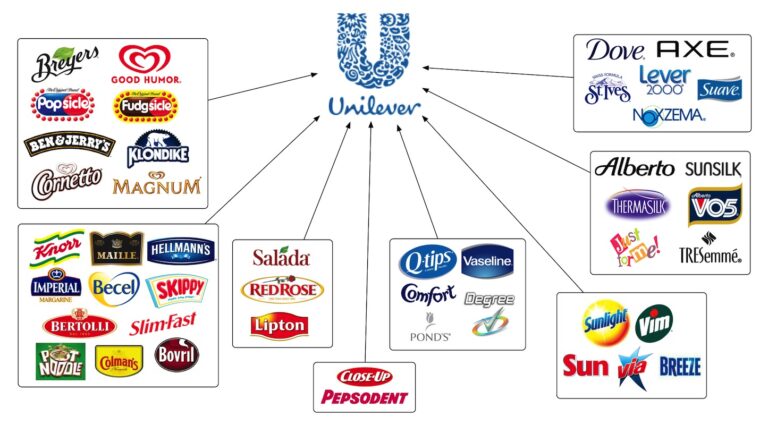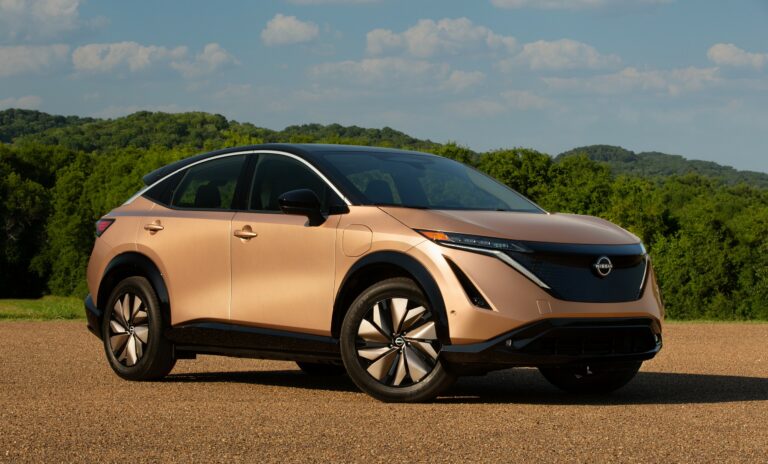U-Haul Car Trailer Rental Pricing: Your Comprehensive Guide to Cost-Effective Vehicle Transport
U-Haul Car Trailer Rental Pricing: Your Comprehensive Guide to Cost-Effective Vehicle Transport cars.truckstrend.com
Moving a vehicle, whether it’s across town or across the country, can often be as complex and costly as moving your household goods. For many, the idea of driving a second vehicle for hundreds or thousands of miles is daunting, if not impossible. This is where U-Haul’s car trailer rental services step in, offering a flexible and often cost-effective solution for DIY vehicle transport. Understanding U-Haul car trailer rental pricing is the first crucial step in planning your move, enabling you to budget accurately, choose the right equipment, and avoid unexpected expenses.
This comprehensive guide will delve into the intricacies of U-Haul’s car trailer rental pricing, breaking down the factors that influence costs, detailing how to obtain accurate quotes, and offering practical advice to ensure a smooth and affordable vehicle relocation experience.
U-Haul Car Trailer Rental Pricing: Your Comprehensive Guide to Cost-Effective Vehicle Transport
Understanding U-Haul’s Car Trailer Options
U-Haul primarily offers two types of car trailers, each designed for different needs and vehicle types, and consequently, with different pricing structures:
-
U-Haul Auto Transport: This is a full car trailer with all four wheels of the towed vehicle resting on the trailer. It’s ideal for long-distance moves, vehicles with low ground clearance, or those that cannot be driven (e.g., non-operational vehicles). It provides maximum protection for your towed vehicle. Auto transports are heavier and require a more robust tow vehicle.
-
U-Haul Tow Dolly: A tow dolly lifts only the front two wheels of the towed vehicle off the ground, with the rear wheels remaining on the road. It’s generally lighter, more compact, and less expensive to rent than an auto transport. Tow dollies are suitable for shorter distances or when the towed vehicle can be safely driven on its rear wheels. They are typically used for front-wheel-drive vehicles.

The choice between these two options will be one of the primary determinants of your rental cost, with the Auto Transport generally being the more expensive option due to its larger size, weight, and capacity.
Factors Influencing U-Haul Car Trailer Rental Pricing
U-Haul’s pricing model for car trailer rentals is dynamic, meaning the exact cost can fluctuate based on several variables. Understanding these factors is key to predicting your expenses:
- Distance of Travel (Local vs. One-Way): This is arguably the most significant factor.
- Local Rentals: Typically priced on a daily basis. You pick up and return the trailer to the same U-Haul location. These are generally much cheaper per day.
- One-Way Rentals: Priced based on the specific origin and destination, and the estimated mileage between them. The price is a flat rate for the entire duration of the trip, allowing you to drop off the trailer at a different U-Haul location. One-way rentals are significantly more expensive than local rentals but offer unparalleled convenience for long-distance moves.
- Duration of Rental: For local rentals, the longer you keep the trailer, the higher the total cost will be, as it’s typically a daily rate. For one-way rentals, U-Haul provides a set number of rental days based on the distance. Exceeding these days may incur additional charges.
- Location (Pickup and Drop-off Points): Prices can vary based on supply and demand in specific geographic areas. Renting from a busy metropolitan area might be more expensive than from a rural location. Availability at your desired locations can also impact pricing; sometimes, renting from a slightly further location can yield a better rate.
- Trailer Type: As mentioned, the Auto Transport is almost always more expensive than the Tow Dolly.
- Time of Year and Availability: Peak moving seasons (e.g., summer, end of the month, holidays) typically see higher demand and, consequently, higher prices. Booking well in advance can sometimes secure better rates and ensure availability.
- Additional Equipment and Services:
- Insurance: U-Haul offers optional coverage plans like Safetow® that protect you against damage to the trailer or your towed vehicle while using their equipment. While optional, it’s highly recommended and adds to the total cost.
- Towing Accessories: If your tow vehicle isn’t already equipped with a hitch, ball mount, or wiring harness, U-Haul can provide these for purchase and/or installation, adding significantly to your initial outlay.
- Environmental Fees and Taxes: Standard fees and state/local taxes will be applied to your rental.
- Vehicle Compatibility: While not a direct cost factor, ensuring your tow vehicle is compatible with the trailer and the vehicle you intend to tow is paramount. U-Haul’s system will prevent you from renting if your tow vehicle doesn’t meet the minimum requirements, potentially forcing you to find a different (and possibly more expensive) solution.
How to Get an Accurate U-Haul Car Trailer Rental Quote
The best way to get an accurate price for your specific needs is directly through U-Haul’s quoting system:
- Visit the U-Haul Website or Use the U-Haul App: Navigate to the "Trailers" section and select "Car Trailers."
- Enter Your Pickup and Drop-off Locations: Be precise with your desired locations, even if they are the same for a local rental.
- Specify Dates and Times: Choose your desired pickup and return dates. Flexibility here can sometimes reveal better rates.
- Enter Your Vehicle Information: You’ll need to provide details about both the vehicle you plan to tow (make, model, year) and the vehicle you plan to tow with (make, model, year, and whether it has a hitch). This is crucial for U-Haul to determine compatibility and recommend the correct trailer.
- Review the Quote: The system will generate a detailed quote, including the estimated rental cost, any suggested insurance options, and a breakdown of taxes and fees.
- Consider Calling: If you have complex needs or can’t find what you’re looking for online, calling U-Haul directly can provide personalized assistance and quotes.
Always get a written or email quote to avoid misunderstandings, and review it carefully for all charges.
Typical U-Haul Car Trailer Rental Price Ranges
It’s important to reiterate that these are estimated price ranges and actual costs can vary significantly based on the factors discussed above, particularly for one-way rentals which are highly sensitive to distance and demand.
| Rental Type & Trailer | Typical Daily/Total Price Range | Key Factors Influencing Price |
|---|---|---|
| Local Rental (Per Day) | ||
| U-Haul Tow Dolly | $40 – $60 | Duration, local demand |
| U-Haul Auto Transport | $55 – $75 | Duration, local demand |
| One-Way Rental (Total Price) | ||
| U-Haul Tow Dolly (Short Distance: 100-300 miles) | $150 – $300 | Distance, origin/destination, availability |
| U-Haul Tow Dolly (Medium Distance: 300-1000 miles) | $300 – $600 | Distance, origin/destination, availability |
| U-Haul Tow Dolly (Long Distance: 1000+ miles) | $600 – $900+ | Distance, origin/destination, availability, seasonality |
| U-Haul Auto Transport (Short Distance: 100-300 miles) | $200 – $400 | Distance, origin/destination, availability |
| U-Haul Auto Transport (Medium Distance: 300-1000 miles) | $400 – $800 | Distance, origin/destination, availability |
| U-Haul Auto Transport (Long Distance: 1000+ miles) | $800 – $1500+ | Distance, origin/destination, availability, seasonality |
| Additional Costs (Per Rental/As Needed) | ||
| Safetow® Insurance | $10 – $25 | Trailer type, rental duration |
| Hitch Receiver (Purchase & Install) | $200 – $500+ | Vehicle type, complexity, labor |
| Wiring Harness (Purchase & Install) | $50 – $150+ | Vehicle type, complexity, labor |
| Environmental Fee | $1 – $5 | Standard fee |
| Taxes | Varies by State/Locality | Local tax rates |
Please note: Prices are estimates and subject to change based on U-Haul’s dynamic pricing model, specific location, availability, and promotional offers.
Practical Advice for Renting a U-Haul Car Trailer
To make your U-Haul car trailer rental experience as cost-effective and stress-free as possible, consider the following:
- Book Early, Especially for One-Way or Peak Season: This increases your chances of getting the desired equipment at a better rate, as last-minute rentals during high demand can be more expensive or unavailable.
- Compare Trailer Types Carefully: Don’t automatically opt for the cheaper tow dolly if an auto transport is truly what you need for safety or vehicle protection. Conversely, don’t overpay for an auto transport if a tow dolly suffices. Consider your vehicle’s specifications, your comfort level with towing, and the distance.
- Understand U-Haul’s Insurance Options (Safetow): While optional, Safetow® can provide peace of mind by covering accidental damage to the U-Haul trailer and your towed vehicle. Weigh the cost against your personal risk tolerance and existing insurance policies.
- Verify Tow Vehicle Compatibility in Advance: Use U-Haul’s online compatibility tool rigorously. It’s crucial that your tow vehicle has the adequate towing capacity, curb weight, and braking system. Failure to meet these requirements means U-Haul will not rent you the trailer, leading to last-minute scrambling and potential cost increases.
- Inspect the Trailer Thoroughly Before Leaving: Check for existing damage, ensure tires are properly inflated, and confirm all lights (brake, turn signals) are working. Document any pre-existing damage with photos or video.
- Consider DIY Hitch/Wiring Installation: If you’re handy and your vehicle supports it, purchasing and installing a hitch receiver and wiring harness yourself from an aftermarket supplier can sometimes be cheaper than U-Haul’s installation services, but ensure it meets their safety standards.
- Be Aware of Potential Hidden Costs: Always get a detailed quote that breaks down all charges, including environmental fees and taxes. Clarify cancellation policies and any potential late return fees.
- Check for Discounts and Promotions: Periodically, U-Haul may offer special rates or promotions. It’s worth checking their website or asking a representative.
Potential Challenges and Solutions
Despite careful planning, you might encounter some challenges:
- Availability Issues: During peak seasons or for specific one-way routes, your desired trailer might not be available.
- Solution: Be flexible with your dates, or check alternative pickup/drop-off locations within a reasonable radius. Booking several weeks or months in advance is your best defense.
- Unexpected Costs: The final bill might be higher than anticipated.
- Solution: Get a detailed, written quote beforehand. Understand what’s included and what’s extra. Account for potential insurance, hitch installation, and taxes.
- Tow Vehicle Incompatibility: Your vehicle might not meet U-Haul’s requirements for towing a car trailer.
- Solution: Use U-Haul’s compatibility tool before making any plans. If your vehicle isn’t suitable, you’ll need to either rent a U-Haul truck (which can then tow the trailer) or find another tow vehicle.
- Towing Safety Concerns: Towing a vehicle, especially a heavy one, can be intimidating.
- Solution: Watch U-Haul’s instructional videos, read their towing guides, and familiarize yourself with safe towing practices (e.g., proper loading, weight distribution, braking distances, speed limits). If you’re truly uncomfortable, consider professional auto transport services, though they will be significantly more expensive.
Frequently Asked Questions (FAQ)
Q: Can I rent a car trailer one-way with U-Haul?
A: Yes, U-Haul specializes in one-way rentals, allowing you to pick up a trailer at one location and drop it off at another across town or across the country.
Q: Do I need a special license to tow a U-Haul car trailer?
A: In most states, a standard driver’s license (Class D) is sufficient for towing U-Haul car trailers, as they typically fall within the weight limits for non-commercial vehicles. However, always check your specific state’s DMV regulations.
Q: What’s the main difference between an Auto Transport and a Tow Dolly?
A: An Auto Transport carries all four wheels of the towed vehicle off the ground, while a Tow Dolly only lifts the front two wheels, with the rear wheels remaining on the road. Auto Transports are generally larger, heavier, and more expensive.
Q: Does U-Haul provide hitches or wiring for my tow vehicle?
A: Yes, U-Haul locations can sell and install hitches, ball mounts, and wiring harnesses for an additional cost if your vehicle isn’t already equipped.
Q: What if my tow vehicle isn’t compatible with the U-Haul car trailer?
A: U-Haul will not rent you the trailer if your tow vehicle doesn’t meet their safety and weight requirements. You would need to rent a larger U-Haul truck that can tow the trailer, or find another suitable tow vehicle.
Q: Can I change my rental dates or locations after booking?
A: Yes, changes are usually possible, but they may result in a price adjustment (either higher or lower) based on current availability and demand. It’s best to confirm changes with U-Haul directly.
Q: Is insurance required when renting a U-Haul car trailer?
A: No, Safetow® insurance is optional, but it is highly recommended to protect against potential damage to the U-Haul equipment or your towed vehicle during the rental period.
Q: Can I load any vehicle onto a U-Haul car trailer?
A: No, U-Haul trailers have specific weight and dimension limits. You must accurately provide your vehicle’s make, model, and year to ensure compatibility. Some larger vehicles or those with very low ground clearance may not be suitable.
Conclusion
U-Haul car trailer rentals offer a practical and often economical solution for transporting vehicles, whether it’s a short local move or a cross-country relocation. While the pricing can seem complex due to its dynamic nature, understanding the key influencing factors—distance, trailer type, location, and timing—empowers you to make informed decisions. By utilizing U-Haul’s online quoting tools, booking in advance, and being mindful of additional costs like insurance or hitch installation, you can effectively manage your budget.
Ultimately, U-Haul provides the tools for a successful DIY vehicle move, putting you in control of your logistics and helping you save on professional auto transport services. With careful planning and an understanding of the pricing structure, you can confidently embark on your journey, knowing your vehicle is securely in tow.





